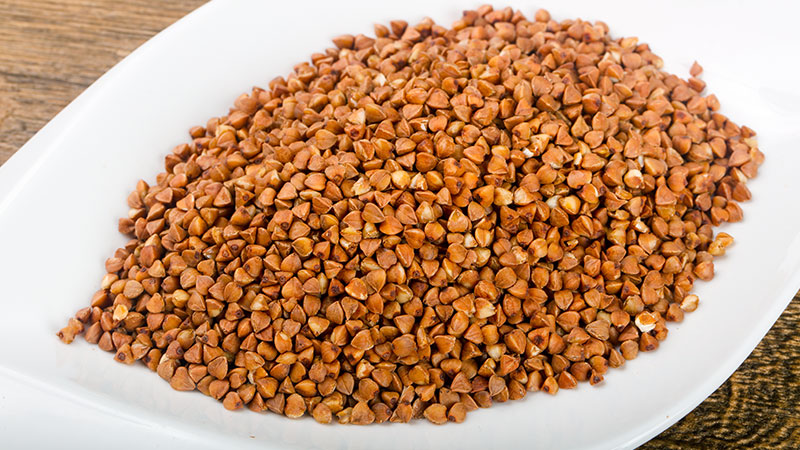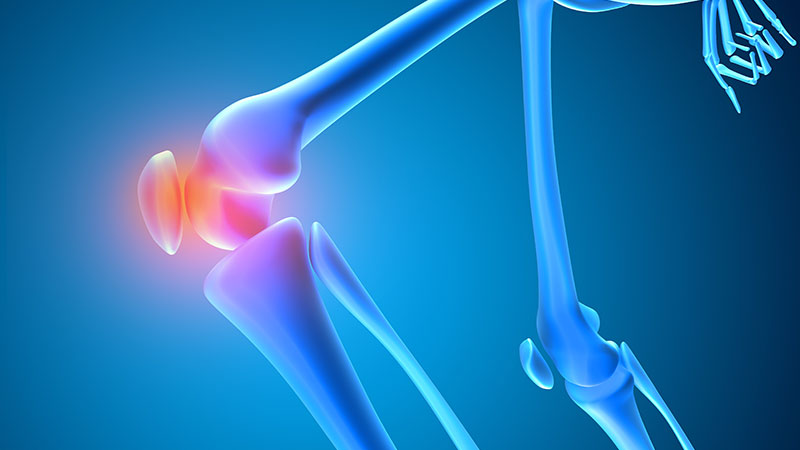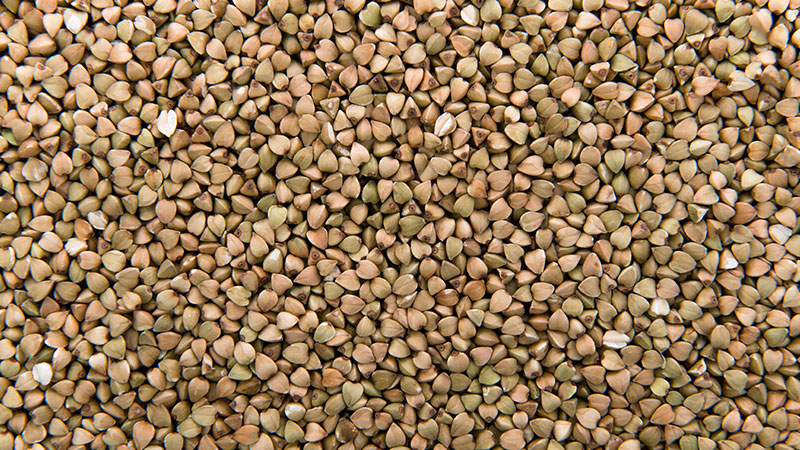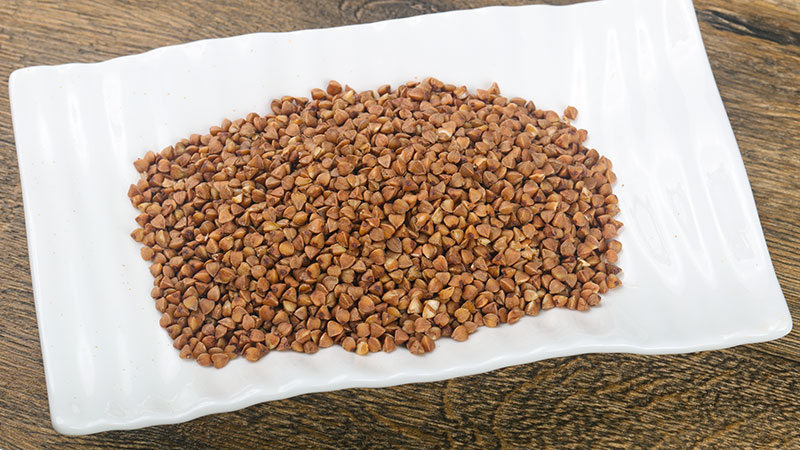What if there were a single food that could boost heart health, regulate blood sugar, and improve digestion all at once? Enter buckwheat, a nutrient-dense pseudocereal with a wealth of health benefits.
Despite its misleading name, buckwheat is entirely gluten-free and packs a powerful nutritional punch.
From its rich antioxidant content to its impressive array of vitamins and minerals, buckwheat offers a comprehensive approach to enhancing overall well-being.
Whether you’re looking to support cardiovascular health with its rutin-packed properties or seeking to stabilize blood sugar levels with its low glycemic index, buckwheat stands out as a versatile and delicious addition to any diet.
Join us as we explore ten compelling reasons why buckwheat deserves a prime spot in your kitchen and on your plate. So, stay sharp.

10 Health Benefits of Buckwheat
Buckwheat, despite its name, is not related to wheat and is actually a pseudocereal, meaning it is consumed like a cereal grain but doesn’t grow on grasses.
Originating from Asia, buckwheat has been a staple food for centuries and is known for its rich nutritional profile.
Packed with essential nutrients, antioxidants, and dietary fiber, buckwheat offers a myriad of health benefits. This gluten-free grain is increasingly gaining popularity as a superfood among health enthusiasts.
Here, we will delve into ten profound health benefits of buckwheat, exploring how incorporating this nutrient-dense food into your diet can enhance your well-being.
1. Rich Source of Nutrients

Buckwheat is a powerhouse of essential nutrients, including vitamins, minerals, and antioxidants.
It is particularly high in manganese, magnesium, copper, and zinc. Manganese is crucial for bone health and metabolism, while magnesium plays a significant role in muscle and nerve function.
Copper is essential for heart health, and zinc supports immune function. Additionally, buckwheat contains a range of B vitamins, which are vital for energy production and brain function.
Nutrient Profile and Benefits:
- Manganese: Supports bone formation and energy metabolism.
- Magnesium: Helps regulate muscle and nerve function, blood sugar levels, and blood pressure.
- Copper: Crucial for cardiovascular health and iron absorption.
- Zinc: Boosts immune function and aids in wound healing.
- B Vitamins: Essential for energy production and maintaining brain health.
2. Supports Heart Health

Buckwheat is beneficial for heart health due to its high content of rutin, a powerful antioxidant. Rutin helps strengthen blood vessels, reduce blood pressure, and improve circulation.
Moreover, buckwheat contains soluble fiber, which aids in lowering cholesterol levels. Consuming buckwheat regularly can reduce the risk of heart disease by improving lipid profiles and reducing inflammation.
Cardiovascular Benefits:
- Rutin: Strengthens blood vessels and reduces inflammation.
- Soluble Fiber: Lowers LDL cholesterol and improves overall cholesterol levels.
- Magnesium: Helps regulate blood pressure and prevent heart attacks.
3. Regulates Blood Sugar Levels

Buckwheat has a low glycemic index (GI), meaning it causes a slow and steady rise in blood sugar levels, which is beneficial for people with diabetes.
The presence of D-chiro-inositol, a compound that enhances insulin sensitivity, further supports blood sugar regulation.
Buckwheat’s complex carbohydrates and fiber content also contribute to better glycemic control, making it an excellent food choice for managing diabetes.
Blood Sugar Control:
- Low Glycemic Index: Promotes stable blood sugar levels.
- D-chiro-Inositol: Enhances insulin sensitivity and glucose uptake.
- Dietary Fiber: Slows carbohydrate absorption and improves glycemic control.
4. Improves Digestive Health

Buckwheat is rich in dietary fiber, particularly soluble fiber, which aids in digestion and promotes gut health. Fiber adds bulk to the stool, preventing constipation and promoting regular bowel movements.
Additionally, buckwheat contains resistant starch, which acts as a prebiotic, feeding beneficial gut bacteria and improving overall gut health.
Digestive Benefits:
- Soluble Fiber: Aids in digestion and prevents constipation.
- Resistant Starch: Feeds good bacteria in the gut, promoting a healthy microbiome.
- Regularity: Supports regular bowel movements and reduces the risk of digestive disorders.
5. Gluten-Free and Non-Allergenic

Buckwheat is naturally gluten-free, making it a safe alternative for individuals with celiac disease or gluten sensitivity.
Unlike other gluten-free grains that may lack essential nutrients, buckwheat is nutritionally dense and can help prevent deficiencies that are common in gluten-free diets. Its non-allergenic nature also makes it suitable for people with various food allergies.
Gluten-Free Benefits:
- Safe for Celiac Disease: Does not trigger autoimmune responses.
- Nutrient-Dense: Provides essential nutrients often lacking in gluten-free diets.
- Non-Allergenic: Suitable for people with food allergies and intolerances.
6. Aids in Weight Management

Incorporating buckwheat into your diet can aid in weight management due to its high fiber and protein content.
These nutrients promote satiety, reducing overall calorie intake by making you feel fuller for longer periods. Buckwheat’s low-calorie density and ability to regulate blood sugar levels also contribute to effective weight management.
Weight Management:
- High Fiber Content: Promotes fullness and reduces overall calorie intake.
- Protein-Rich: Supports muscle maintenance and enhances satiety.
- Low-Calorie Density: Allows for larger portion sizes with fewer calories.
7. Boosts Immune System

Buckwheat contains several compounds that boost the immune system, including antioxidants like rutin, quercetin, and selenium. These antioxidants help protect the body from oxidative stress and reduce inflammation, which can weaken the immune system.
Additionally, the presence of zinc and other essential nutrients supports the production and function of immune cells.
Immune Support:
- Antioxidants: Protect against oxidative stress and reduce inflammation.
- Zinc: Supports immune cell production and function.
- Selenium: Enhances immune response and protects cells from damage.
8. Promotes Bone Health

The high mineral content in buckwheat, especially manganese, magnesium, and phosphorus, is beneficial for bone health. These minerals are essential for bone formation, density, and strength.
Regular consumption of buckwheat can help prevent bone-related disorders such as osteoporosis and support overall skeletal health.
Bone Health:
- Manganese: Supports bone formation and maintenance.
- Magnesium: Contributes to bone density and reduces the risk of fractures.
- Phosphorus: Vital for bone strength and structure.
9. Enhances Skin Health

Buckwheat’s rich array of antioxidants and essential nutrients can enhance skin health. The antioxidants help combat free radicals that cause skin aging and damage.
Furthermore, the presence of B vitamins and other minerals supports healthy skin by promoting cell regeneration and repair. Consuming buckwheat can lead to a clearer, more youthful complexion.
Skin Benefits:
- Antioxidants: Protect skin from aging and environmental damage.
- B Vitamins: Promote cell regeneration and repair.
- Minerals: Support overall skin health and vitality.
10. Supports Mental Health

Buckwheat’s nutrient profile includes essential vitamins and minerals that support mental health.
Magnesium helps regulate neurotransmitters involved in mood and relaxation, while B vitamins are crucial for brain function and energy production. Regular consumption of buckwheat can help reduce stress, improve mood, and enhance cognitive function.
Mental Health Benefits:
- Magnesium: Regulates neurotransmitters and reduces stress.
- B Vitamins: Support brain function and energy production.
- Antioxidants: Protect brain cells from oxidative stress and aging.
Incorporating buckwheat into your diet offers a multitude of health benefits, from supporting heart and digestive health to boosting the immune system and enhancing mental well-being.
Its rich nutrient profile, combined with its gluten-free and non-allergenic nature, makes it an excellent choice for individuals seeking a nutritious and versatile food option.
Nutrition Profile of Buckwheat

Buckwheat boasts a robust nutritional profile, offering a balance of macronutrients, vitamins, minerals, and antioxidants.
This pseudocereal stands out for its rich content of essential amino acids and beneficial compounds, making it a valuable addition to a wholesome diet.
Nutrition Profile of Buckwheat:
- Calories: 343 kcal per 100g
- Protein: 13.3g per 100g
- Carbohydrates: 71.5g per 100g
- Dietary Fiber: 10g per 100g
- Sugars: 0g per 100g
- Fat: 3.4g per 100g
- Saturated Fat: 0.7g per 100g
- Monounsaturated Fat: 1.0g per 100g
- Polyunsaturated Fat: 1.1g per 100g
Vitamins
- Vitamin B1 (Thiamine): 0.1mg per 100g
- Vitamin B2 (Riboflavin): 0.4mg per 100g
- Vitamin B3 (Niacin): 7.0mg per 100g
- Vitamin B5 (Pantothenic Acid): 1.2mg per 100g
- Vitamin B6: 0.2mg per 100g
- Folate: 30µg per 100g
Minerals
- Calcium: 18mg per 100g
- Iron: 2.2mg per 100g
- Magnesium: 231mg per 100g
- Phosphorus: 347mg per 100g
- Potassium: 460mg per 100g
- Sodium: 1mg per 100g
- Zinc: 2.4mg per 100g
- Copper: 1.1mg per 100g
- Manganese: 1.3mg per 100g
Amino Acids: Contains all essential amino acids
Antioxidants: Rich in rutin, quercetin, and other polyphenols
Things to Consider While Eating Buckwheat Daily

Incorporating buckwheat into your daily diet can offer numerous health benefits, but it’s essential to consider a few factors to maximize its nutritional value and avoid potential pitfalls.
1. Balance with Other Foods
While buckwheat is nutritious, it’s important to maintain a balanced diet that includes a variety of foods. Incorporate fruits, vegetables, lean proteins, and healthy fats alongside buckwheat to ensure you’re getting a diverse range of nutrients.
2. Watch Portion Sizes
Despite its health benefits, buckwheat is calorie-dense. Be mindful of portion sizes to avoid consuming excess calories, especially if you are watching your weight or managing certain health conditions like diabetes.
3. Cooking Methods
Opt for healthier cooking methods such as steaming, boiling, or dry roasting buckwheat to preserve its nutritional content. Avoid deep-frying or adding excessive amounts of oil, which can add unnecessary calories and compromise its health benefits.
4. Consider Allergies and Sensitivities
Although buckwheat is gluten-free, some individuals may have allergies or sensitivities to it. Monitor your body’s response when introducing buckwheat into your diet, especially if you have a history of food allergies.
5. Pair with Complementary Foods
Enhance the bioavailability of nutrients in buckwheat by pairing it with foods rich in vitamin C (like citrus fruits or bell peppers) or healthy fats (such as avocado or olive oil). This can aid in the absorption of minerals like iron and enhance overall nutrient absorption.
6. Variety of Preparations
Enjoy buckwheat in various forms such as groats, flour, noodles (soba), or as a base for salads and pilafs. Experimenting with different preparations can keep meals interesting while ensuring you receive a diverse array of nutrients.
7. Monitor Sodium Intake
Be mindful of sodium levels when consuming buckwheat products like packaged noodles or snacks. Opt for low-sodium varieties or prepare buckwheat dishes at home to better control your salt intake.
By incorporating buckwheat into your daily diet mindfully, you can harness its nutritional benefits effectively. Consider these factors to optimize your intake of this nutrient-dense pseudocereal while ensuring a well-rounded approach to overall health and wellness.
Wrapping Up
Buckwheat emerges as a versatile and nutrient-packed addition to any diet, offering a plethora of health benefits.
From supporting heart health and regulating blood sugar levels to enhancing digestive health and boosting immune function, its rich profile of vitamins, minerals, antioxidants, and dietary fiber makes it a standout superfood.
Buckwheat’s gluten-free nature and low allergenic potential further broaden its appeal, catering to diverse dietary needs.
Whether enjoyed as groats, flour, noodles, or in various culinary creations, incorporating buckwheat can contribute significantly to overall well-being.
Its ability to promote weight management, improve skin health, and support mental clarity underscores its holistic benefits.
Embracing buckwheat not only diversifies meals but also empowers individuals to prioritize nutrition without compromising on taste or dietary preferences.
Make buckwheat a staple in your kitchen to reap these myriad health rewards and nourish your body effectively. Thank you so much.
